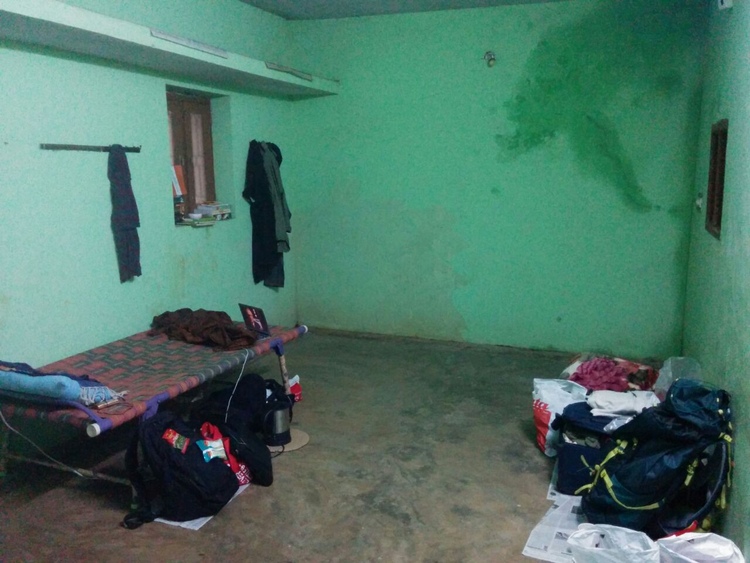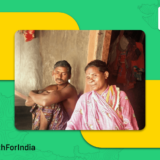
Youth for India Fellowship: A Journey of Personal and Professional Growth
Many times, we are asked questions about the fellowship experience. To help us answer many such questions, our fellow Anirudh Prasadh has decided to share the details of his journey. Embark on his journey and get an up-close and personal experience of the Youth for India fellowship through this series of posts.
The Journey Begins: An Inside Look at the Youth for India Fellowship

Part 1: Living in a Village - Miscalculations and Understandings
In this part, I wish to shed light on my first month in Kolli Hills, Tamil Nadu, where I spent the majority of my Youth for India fellowship. After completing the induction and orientation in Pune and Chennai (for MSSRF fellows), our domain mentor, Dr. Oliver King, informed us that initial accommodation arrangements were in place and that the local team would assist us in settling in.
Moving to a new place is always difficult, but doing so in an Indian village, especially one that is far from national or state highways, can be quite a shock. Despite spending a significant amount of time imagining the rudimentary lifestyle I would be living for the next 11 months, Kolli Hills was quite different from what I had imagined.
Kolli Hills is a picturesque, untouched hill station in the Namakkal District of Tamil Nadu, located roughly 60 km from Namakkal city. The road to Kolli Malai (as it is known in Tamil) is a scenic yet dangerous route, with 70 hairpin bends. The journey up the hills should be completed at least once in a local transport bus, preferably crowded, just to add to the spectacle that is Kolli Hills.

Our initial accommodation was with an MSSRF employee, who was kind enough to share his room until we found a place of our own. As luck would have it, another employee was planning to vacate his house, and thus we soon had our own place. However, it didn't take long to realize that lack of continuous water supply and unwanted visitors crawling on us at all times would be a usual occurrence and something we just had to get used to.
On the other hand, how often does one get a chance to live amongst coffee and pepper plants or have easy access to a vegetable garden? We had a kitchen garden (grown by our previous tenants and neighbors) that gave a steady supply of beans and pumpkins. Add to that a guava tree and pumpkin tree, one could truly say we were blessed.
In terms of work, we spent the first two weeks meeting local stakeholders and had a good grasp of problems affecting the area. We also realized that Kolli Hills was quite large, comprising 14 panchayats and many villages. MSSRF and its staff were involved in a wide array of work in 8 villages from different panchayats. The average distance of each village was 20 km from the town center, i.e. Semmedu (where we were based).
MSSRF had been working in Kolli Hills for well over 15 years. Their work was primarily related to agriculture and biodiversity, domains that require long-term interventions. MSSRF had recently set up Village Knowledge Centers (VKC) in 6 new villages. Each VKC was designed to be a one-stop shop for all the information and resources needed by the villagers. These centers were equipped with computers, internet, and trained staff to assist the villagers with their needs.
The first month in Kolli Hills was a period of adjustment for us. We learned to live with the lack of basic amenities and the constant presence of insects and other unwanted visitors. We also learned to appreciate the beauty and simplicity of village life.
Also Read: MBA graduate working on cluster development with NGO
Part 2: The Work Begins - Challenges and Lessons

As the first month in Kolli Hills came to a close, we were ready to begin our work in earnest. We were assigned to work in two villages, each with its own unique set of problems and challenges. Our task was to work with the local community and MSSRF staff to identify and address these problems and to come up with sustainable solutions.
The first village we worked in was Kottakarai. The main problem we identified here was the lack of access to clean drinking water. The villagers were dependent on a single borewell, which often ran dry during the summer months. This caused a lot of hardship for the villagers, especially the women and children who had to walk long distances to fetch water.
We worked with the community and MSSRF staff to come up with a solution. We proposed the construction of a rainwater harvesting system, which would collect and store rainwater for use during the dry months. This would not only provide a reliable source of clean drinking water but also help to recharge the groundwater table.
The second village we worked in was Kannappar. The main problem here was the lack of livelihood opportunities for the villagers. Many of the villagers were dependent on agriculture, but the yields were low due to the poor quality of soil and lack of irrigation.
We worked with the community and MSSRF staff to come up with a solution. We proposed the implementation of a terrace gardening system, which would allow the villagers to grow vegetables on their own terraces. This would not only increase their food security but also provide an additional source of income.
The second village we worked in was Kannappar. The main problem here was the lack of livelihood opportunities for the villagers. Many of the villagers were dependent on agriculture, but the yields were low due to the poor quality of soil and lack of irrigation.
We worked with the community and MSSRF staff to come up with a solution. We proposed the implementation of a terrace gardening system, which would allow the villagers to grow vegetables on their own terraces. This would not only increase their food security but also provide an additional source of income.
Both of these projects were challenging and required a lot of hard work and dedication. We faced many obstacles, including a lack of funding and resistance from the community. But we persisted and were able to overcome these challenges and see our projects come to fruition.
The fellowship experience taught us many valuable lessons. We learned that sustainable development is a complex and multifaceted process that requires a holistic approach. We learned that the key to success is to work closely with the community and to involve them in every step of the process. We also learned that the most important thing is to be patient and persistent and not to give up.
As the fellowship experience comes to an end, we look back on our journey with a sense of accomplishment and pride. We have made a small but meaningful difference in the lives of the villagers and have gained a wealth of knowledge and experience that will stay with us for the rest of our lives.
The Youth for India fellowship is an opportunity of a lifetime, and we would recommend it to anyone who is passionate about making a difference and wants to gain a deeper understanding of rural India.
Part 3: Reflections and Takeaways

As my fellowship experience comes to an end, I cannot help but feel a sense of nostalgia and longing for the life I had built in Kolli Hills. The last 11 months have been a rollercoaster of emotions, experiences, and lessons. I have grown in ways that, I could not have imagined and have come to appreciate the beauty and complexity of rural India.
One of the biggest takeaways from my fellowship experience was the importance of community involvement in sustainable development. I learned that the key to success is to work closely with the community and involve them in every step of the process. This not only ensures that the projects are tailored to their specific needs but also increases the chances of success and sustainability in the long run.
I also learned the importance of patience and persistence. Many of the projects we worked on faced multiple obstacles and challenges, but we were able to overcome them by not giving up and continuing to work with the community.
Another major takeaway was the importance of cultural sensitivity and understanding. Living in a village for 11 months allowed me to immerse myself in the local culture and understand the nuances that I would have missed otherwise. This helped me to better understand and relate to the villagers, which in turn helped in building trust and working together towards common goals.
Lastly, the fellowship experience has reinforced my belief in the power of education and empowerment. Through the Village Knowledge Centers, MSSRF was able to empower the villagers with the knowledge and resources they needed to improve their lives. This has been a humbling experience and has reinforced my belief that education and empowerment are the keys to sustainable development.
In conclusion, the Youth for India fellowship is an opportunity that has changed my life in many ways. I have gained a wealth of knowledge and experience that will stay with me for the rest of my life. I would recommend this fellowship to anyone who is passionate about making a difference and wants to gain a deeper understanding of rural India. The challenges are many, but the rewards are immeasurable.



Deepanshu Jangid
This is such a great experience, through the story I am able to visualize the journey & relate it to myself. This is an aid to prepare myself for such an experience also it’s very well written